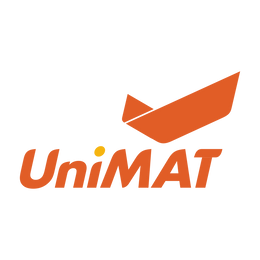Certainly, here's a more detailed version of the article on the development trends of PLC and Industrial Internet of Things (IIoT), and the potential impact on various industries.
PLC and IIoT are two of the most important technologies in the field of industrial automation today. As the manufacturing industry continues to undergo digital transformation, PLC and IIoT will play an increasingly important role. In fact, it is expected that the global market for industrial automation, including PLC and IIoT, will continue to grow rapidly in the coming years.
In terms of development trends, here are some key areas that may become the focus in the near future:
-
Increased Automation: As technology continues to advance, the level of automation in manufacturing will continue to increase. In the future, PLC and IIoT will play a more important role in factory automation and robotics. For example, through the use of industrial robots and smart machinery, the manufacturing process can be optimized, production efficiency can be improved, and costs can be reduced.
-
Data Analytics and Predictive Maintenance: IIoT can help companies collect large amounts of data from connected devices, which can then be analyzed to predict equipment failures and maintenance needs, thereby improving equipment reliability and efficiency. In addition, by analyzing data from multiple devices and sources, manufacturers can gain valuable insights into the performance of their entire manufacturing process and supply chain, and make more informed decisions.
-
IoT Security: As IIoT becomes more prevalent, interconnectivity between devices will become more common. In the future, IoT security will become an important issue. PLC and IIoT vendors will focus on security to ensure the safety of devices and data. This will require the development of more robust security protocols and technologies, as well as greater awareness among manufacturers and end-users of the importance of IoT security.
So, which industries are likely to benefit from the development of PLC and IIoT? Here are some potential industries:
-
Manufacturing: PLC and IIoT have already been widely applied in the manufacturing sector, and this industry will continue to be an important area of application in the future as technology advances. In particular, the use of automation and data analytics in manufacturing can lead to improved productivity, better quality control, and increased cost efficiency.
-
Agriculture: With the promotion of smart agricultural technology, PLC and IIoT will provide support for automation, precision planting, and intelligent agriculture in the agriculture sector. For example, sensors can be used to monitor soil conditions, temperature, and humidity, and this data can be analyzed to optimize crop yields and reduce waste.
-
Construction: IIoT can provide more efficient building processes for the construction industry, thereby improving the quality and safety of construction. For example, by using sensors and other IoT devices to monitor the construction process in real-time, builders can identify potential issues and address them more quickly.
In addition to these industries, other industries such as transportation, energy, and healthcare may also benefit from the development of PLC and IIoT. For example, in the transportation industry, IIoT can be used to optimize logistics and supply chain management, while in the energy industry, it can be used to monitor and control energy usage and improve sustainability. In healthcare, IIoT can be used to improve patient care and safety, as well as to support medical research.
Overall, PLC and IIoT will continue to develop in the next few years, and will play an increasingly important role in multiple industries. As companies continue to invest in these technologies, they will be able to improve efficiency, reduce costs, and create new business opportunities.

